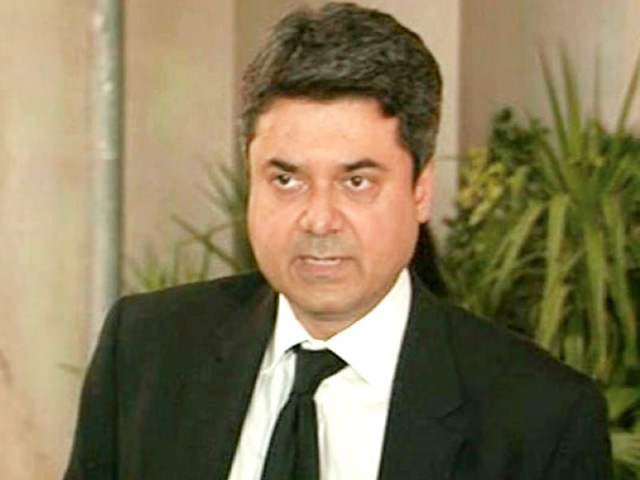High treason trial: ‘Article 6 does not apply to Musharraf’
Defence lawyer says courts validated emergency rule.

Former military ruler Pervez Musharraf’s legal team has claimed before a three-judge special court that Article 6 of the Constitution, in its present form, is not applicable to the high treason case.
Leading defence counsel Farogh Naseem, while cross-examining the interior secretary Shahid Khan, stated that no action by the former president falls within the ambit of Article 6.
According to the article, ‘any person who abrogates or subverts or suspends or holds in abeyance, or attempts or conspires to abrogate or subvert or suspend or hold in abeyance, the Constitution by use of force or show of force or by any other unconstitutional means shall be guilty of high treason’. Additionally, those aiding, abetting or collaborating with such a person are also guilty of high treason.
Responding to Musharraf’s counsel, the interior secretary said he could not comment on the matter as he is not a constitutional expert. However, he refuted the claim that the article is irrelevant in the case.
Naseem said he feared that any documents relating to the consultation process with then-prime minister Shaukat Aziz, the cabinet, governors, chief ministers, senior army officers and legislators which led to the promulgation of emergency rule in 2007 have been destroyed. The interior secretary disputed this claim.
However, Khan conceded that the Joint Investigation Team could not approach General Headquarters (GHQ) for access to records to ascertain who aided, abetted or facilitated Musharraf in his decision to impose emergency rule. The secretary, who came under fire during cross-examination for his alleged close relationship with the prime minister and the Punjab chief minister, said the JIT did not record the statements of any senior army officials as there was no evidence of the Vice Chief of Army Staff General Ashfaq Pervaiz Kayani, services chiefs, corps commanders and any other senior member of armed forces abetting Musharraf. Naseem described the JIT’s inquiry report as ‘partial, incomplete, inaccurate, biased, malicious, fraudulent, fractious and mala fide’.
“I might have asked the JIT members about their failure to record any statements from military officials or access to GHQ records, but I cannot remember each and every thing,” said Khan. “If you were not allowed access to GHQ records then did you approach any court?” asked Naseem. The secretary said he had not.
Responding to another question regarding abettors, Khan said he did not think that the excuse of ‘following illegal orders’ and ‘failing to dissent’ are applicable within the definition of ‘aiders, abettors and facilitators’. He pointed to various apex court judgements holding that ‘following illegal orders’ is no excuse to aid a crime. When asked if General Kayani could be declared an ‘abettor’, Khan said he is not in a position to answer such a question.
While the secretary admitted that no commission was formed to oversee the investigation in the case, as promised by the prime minister, he said the PM gave a ‘general statement’ regarding the issue. However, the court observed that the PM’s statement was incorporated in an order of the Supreme Court.
Naseem added that some of Musharraf’s cabinet members and legislators received exemption from prosecution as many of them are members of the ruling party and federal cabinet. He pointed out that the Supreme Court in 2005 allowed Musharraf to hold dual offices and the apex court validated Musharraf’s actions once again in 2008.
Published in The Express Tribune, July 3rd, 2014.



















COMMENTS
Comments are moderated and generally will be posted if they are on-topic and not abusive.
For more information, please see our Comments FAQ